Craving that matcha vibe but your pantry’s throwing you a curveball? No stress!
We’ve got the backdoor secrets for whipping up that green goodness, even when the real deal seems miles away.
Sure, matcha’s got its charm, but sometimes life calls for a pinch of creativity.
And hey, experimenting in the kitchen is half the fun, right?
Get ready to jazz up your drinks and desserts with these killer swaps.
Trust us, your tastebuds won’t know what hit ’em!
What’s Matcha Powder?

Matcha powder is a traditional Japanese green tea powder made from whole tea leaves that are stone-ground into a fine powder.
It has become increasingly popular due to its vibrant, concentrated flavor and abundance of antioxidants.
Matcha powder is surprisingly energizing yet soothing, boasting the same caffeine content as coffee but with much smoother effects, making it ideal for morning pick-me-ups or mid-day pick-me-ups without overstimulating the body.
The taste of matcha can be quite powerful; you may find it has an earthy and grassy undertone balanced with a slightly sweet finish.
When mixed with water, matcha supplements have an intense frothy texture due to their finely ground organic matter.
It’s most often used in teas and smoothies but also lends well to baking recipes for some fun and unique desserts.
If you’re looking for a natural way to give yourself more energy that’s a little outside the box, look no further than matcha powder.
The 5 BEST Substitutes for Matcha Powder
If you’re looking to brew up a delicious cup of matcha but don’t have any matcha powder, then you’re in luck.
We’ve rounded up five great alternatives that will allow you to enjoy your drink just as much as if you had used the real stuff.
| Substitute | Key Characteristics | Substitute Ratio |
|---|---|---|
| Green Tea | Made from dried tea leaves, earthy flavor, contains caffeine | 1:1 |
| Yerba Mate | Herbal tea with a robust flavor, contains caffeine and antioxidants | 1:1 |
| Spirulina Powder | Blue-green algae rich in nutrients, earthy taste | 1/2 to 1 teaspoon of spirulina per 1 teaspoon of matcha |
| Barley Grass Powder | Powdered young barley grass, mild taste, high in nutrients | 1:1 |
| Moringa Powder | Derived from the moringa tree, grassy flavor, loaded with nutrients | 1:1 |
Now, let’s dive into each substitute in more detail:
1 – Green Tea
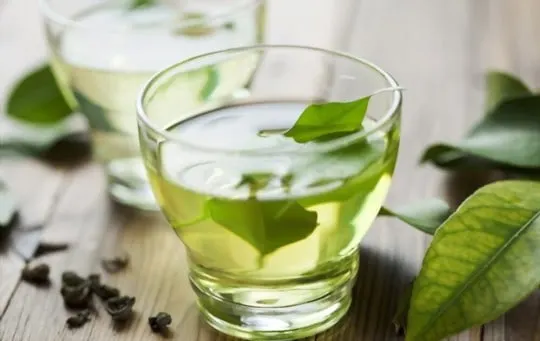
Green tea has been around for centuries, making its mark as one of the most beloved beverages ever to exist.
Although its flavor is relatively subtle compared to other teas, there’s something so uplifting and serene about a good cup of green tea that cannot be denied.
It provides a healthy amount of caffeine without being over the-top, and for those looking for something even lighter, there are decaffeinated options readily available.
The texture of green tea varies depending on how you prepare it, but it is generally light and slightly crisp with underlying notes of sweetness.
It also pairs wonderfully with many different flavors that would otherwise be overwhelming – ginger, honey, or lemon make an extraordinary combination.
One unexpected surprise? Green tea can serve as a wonderful substitute for matcha powder when baking goods – just make sure to reduce the amount you use since it contains more liquid than powder.
2 – Yerba Mate
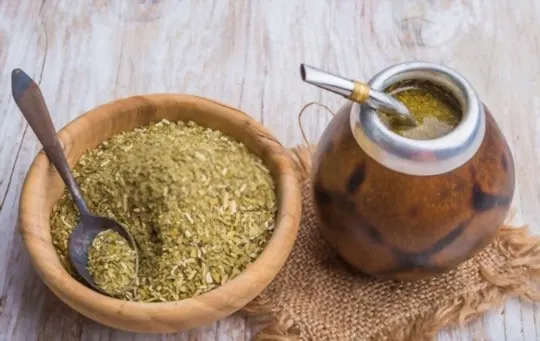
Yerba mate is quickly growing in popularity due to its high content of caffeine and several other nutritional benefits.
It’s a type of tea made by infusing dried leaves of the Ilex paraguariensis plant in hot water before consuming it.
Traditional yerba mate has a woody, grassy flavor without being overly bitter that goes well with honey or lemon for mild flavor variations.
Apart from its unique taste, yerba mate also offers an alternative to matcha powder for those looking for an energy boost.
To substitute yerba mate for matcha, simply steep 1-2 teaspoons per 8 ounces in hot water before consuming it, just like tea, and add honey or lemon if desired.
Yerba mate is the perfect way to get your daily dose of caffeine without loading up on sugar or chemicals, making it a refreshing beverage that’s great any time of day.
3 – Spirulina Powder
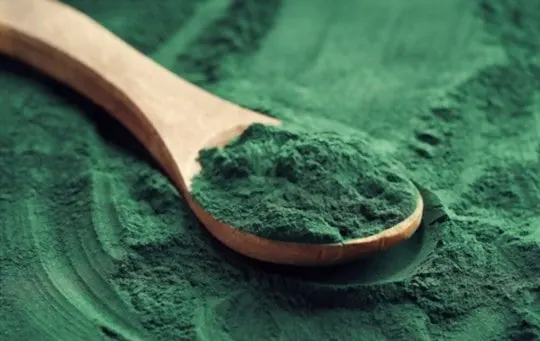
Spirulina powder has recently taken the health food world by storm.
It is a nutritional powerhouse, almost 70% protein, and high in healthy antioxidants, minerals, gamma-linolenic acid (GLA), chlorophyll, and phycocyanin.
It imparts an earthy flavor to dishes without an overpowering taste, making it perfect for smoothies, juices, and salads.
It also has a distinct vibrant blue-green color that can be used to add drama to dishes like Buddha Bowls or oatmeal porridge.
The powder can easily be substituted for matcha powder in many recipes- simply add the same amount as you would have of matcha powder but double the amount of liquid used.
For busy people on the go, spirulina powder is an incredibly convenient way to get nutrients quickly.
4 – Barley Grass Powder
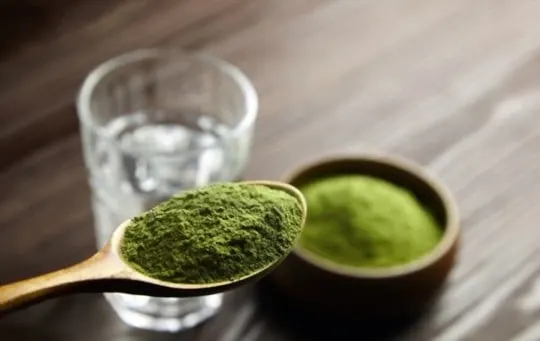
Barley Grass Powder has been gaining attention in the health and wellness community as of late.
It’s made from barley grass, an easily obtainable form of young barley shoots, by drying and grounding them into powder form.
Not to be confused with a dietary supplement, Barley Grass Powder is full of beneficial live enzymes that are believed to help with inflammation and digestion.
The powder has a distinct nutty taste and grainy texture that can certainly make it a nice addition to smoothies or used to top off your oatmeal.
For those who’d like to substitute it for matcha powder, try adding a spoonful over toast with nut butter and banana to get that same boost of energy you’re used to with matcha.
5 – Moringa Powder
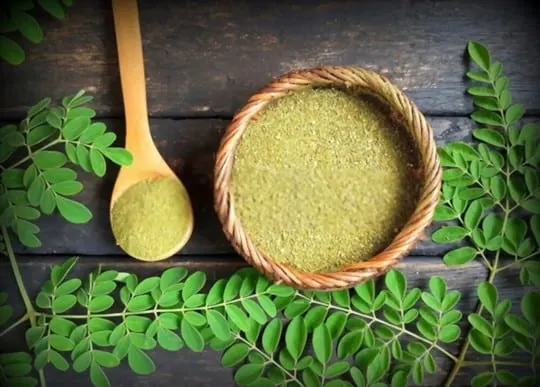
Moringa powder has lately become a favorite among health fanatics thanks to its vast nutritional benefits.
The powder is made with the moringa oleifera plant, which originates in India and has long been used as an herbal medicine.
It has many health benefits, such as being rich in protein and dietary fiber, providing a boost of energy from vitamins B6 and iron, containing anti-inflammatory and antimicrobial properties, and is loaded with antioxidants.
As for taste and texture, the powder is described as having a somewhat nutty flavor with notes of sweetness.
It can be easily substituted for matcha powder when making lattes or smoothies; simply add one teaspoon of Moringa powder per one tablespoon of matcha to the recipe.
Who knew you could get so much into one handy spoon?
Conclusion
In conclusion, there are many alternatives to matcha powder that offer the same health benefits and energy boost.
Whether you’re looking for something with a bit more flavor or an easier way to get your daily dose of nutrients, these five substitutes are sure to have something for everyone.
From yerba mate to moringa powder, each alternative offers unique benefits– it’s just a matter of finding the one that works best for you.
So, say goodbye to matcha powder and discover these five great substitutes today.

Andrew Gray is a seasoned food writer and blogger with a wealth of experience in the restaurant and catering industries. With a passion for all things delicious, Andrew has honed his culinary expertise through his work as a personal chef and caterer.
His love for food led him to venture into food writing, where he has contributed to various online publications, sharing his knowledge and insights on the culinary world. As the proud owner of AmericasRestaurant.com, Andrew covers a wide range of topics, including recipes, restaurant reviews, product recommendations, and culinary tips.
Through his website, he aims to inspire and educate fellow food enthusiasts, offering a comprehensive resource for all things food-related.

Leave a comment